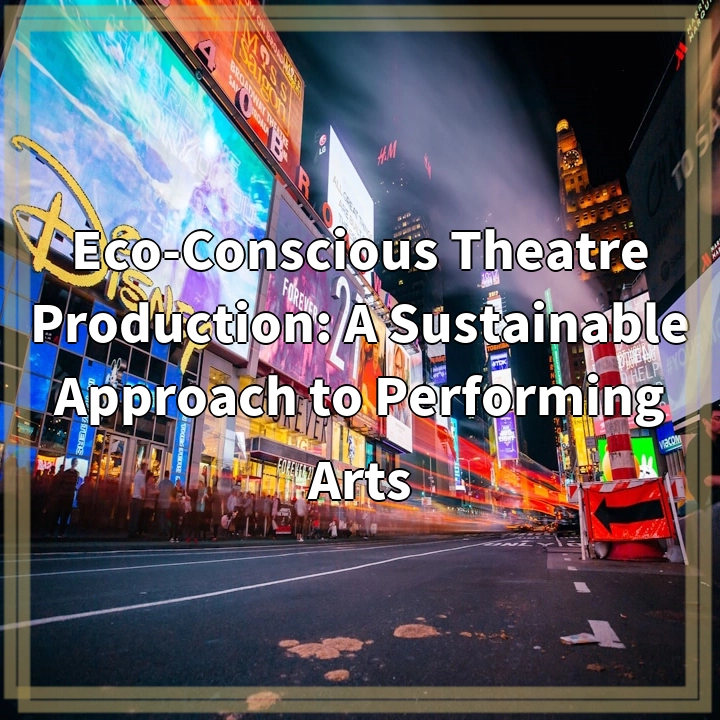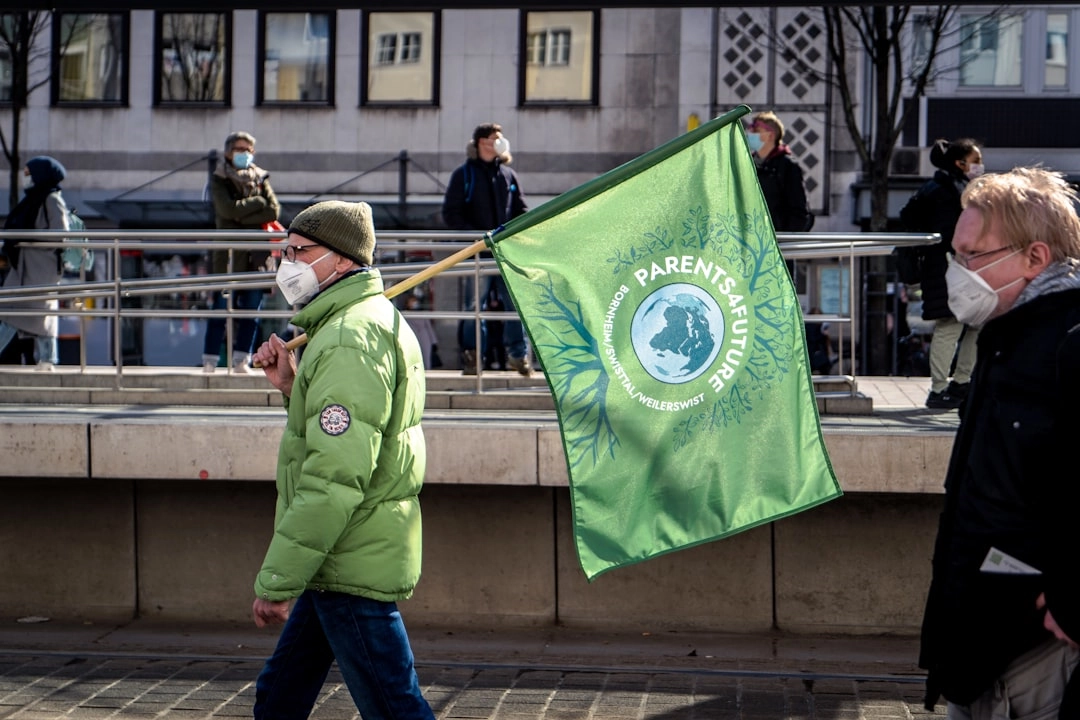
What it is:
Eco-conscious theatre production refers to the practice of creating theatrical performances that prioritize sustainability and minimal environmental impact. This approach encompasses various aspects of production, including set design, costume creation, lighting, and sound, all while considering the ecological footprint of materials and processes used. The goal is to align the values of theatre arts with environmental stewardship, promoting awareness about ecological issues through creative expression.
Key Principles of Eco-Conscious Theatre
1. **Sustainable Materials**: Eco-conscious theatre emphasizes the use of recycled, repurposed, or sustainably sourced materials in set and costume design to reduce waste and decrease the need for new resources.
2. **Energy Efficiency**: By utilizing energy-efficient lighting and sound equipment, productions can significantly lower their electricity consumption. Additionally, they may incorporate renewable energy sources, like solar power, into their operations.
3. **Waste Reduction**: Productions adopt strategies to minimize waste, such as recycling set pieces and using digital marketing materials instead of printed ones. Furthermore, promoting a zero-waste ethos among cast and crew is essential.
Real-World Problems
Despite the growing movement towards sustainable practices in theatre, several real-world problems hinder the widespread adoption of eco-conscious theatre production.
1. Limited Budget and Resources
Many theatre companies, particularly small or community-based ones, operate on tight budgets. The costs associated with sourcing sustainable materials and implementing energy-efficient technologies can be prohibitive, making it challenging to transition to eco-conscious practices.
2. Industry Standards and Resistance to Change
Theatre, like many arts industries, is steeped in tradition. Resistance to change from established practices can slow the adoption of sustainable methods. Some theatre practitioners may prioritize traditional aesthetics over environmentally friendly alternatives, believing they compromise the artistic quality.
3. Lack of Awareness and Education
There is a general lack of awareness regarding eco-conscious theatre among both audience members and practitioners. Educational resources focusing on sustainability in the performing arts are still limited. Without proper training or understanding of sustainable practices, theatre professionals may not know how to implement these changes effectively.
4. Disconnection from Broader Environmental Movements
While many in the arts community are passionate about environmental issues, there can be a disconnect between theatre production and larger ecological initiatives. Integrating theatre with ongoing environmental campaigns can sometimes be a missed opportunity for collaboration.
5. Audience Expectations
Some audiences may prioritize conventional theatre experiences, focusing on production values rather than the sustainability of the processes behind them. This expectation can pressure theatre companies to prioritize spectacle over eco-conscious decisions, leading to a conflict between audience engagement and environmental responsibility.

Solutions for Promoting Eco-Conscious Theatre Production
To address the challenges associated with eco-conscious theatre production, several solutions can be implemented. These strategies aim to enhance sustainability within the performing arts while encouraging wider adoption of eco-friendly practices.
1. Increase Funding and Grants for Sustainable Initiatives
One effective solution is to secure funding and grants specifically aimed at supporting sustainable theatre productions. Arts organizations, communities, and governments can collaborate to provide financial resources that help smaller companies transition to eco-conscious practices without compromising their artistic vision.
2. Foster Education and Training Programs
The establishment of educational programs focused on sustainable theatre practices can equip artists, production teams, and students with the knowledge necessary to innovate and participate in eco-conscious productions. Workshops and seminars can facilitate the sharing of best practices and inspire creativity in sustainability.
3. Build Partnerships with Environmental Organizations
Forming partnerships with environmental organizations can create synergies between the arts and sustainability movements. Collaborating with eco-groups allows theatre companies to access expertise, resources, and support for their initiatives, amplifying their impact on the community.
4. Engage Audiences in Sustainability Efforts
To shift audience expectations, theatre companies can actively engage their patrons in sustainability efforts. This includes incorporating educational materials into programs, showcasing behind-the-scenes processes, and emphasizing the environmental benefits of their productions. Encouraging audience participation can cultivate a shared responsibility for sustainability.
5. Use Creative Narratives to Promote Environmental Themes
Integrating environmental themes into performances can raise awareness and inspire action among audiences. By crafting compelling narratives that highlight ecological issues, theatre productions can resonate with viewers and encourage them to ponder their own environmental impact.















